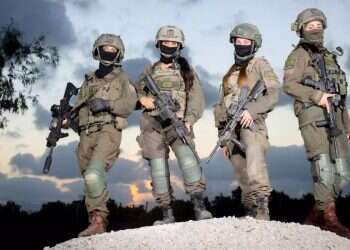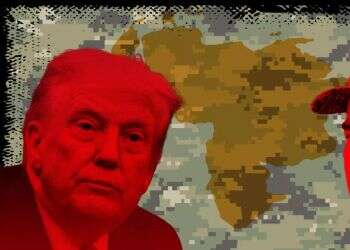Unlike some of his predecessors, Maj. Gen. Tamir Yadai can look back at his tenure as GOC Central Command with satisfaction. He may have taken flak from every direction on almost every topic, but that comes with the job. From his perspective, the sharp decline in Palestinian and Jewish terrorism statistics and the feeling of security in the area under the command's control are the proof of the pudding.
Follow Israel Hayom on Facebook and Twitter
Yadai's main achievement was the Central Command's success in preventing an outbreak of violence during Operation Guardian of the Walls in May. The West Bank remained relatively quiet during the conflict, unlike the Gaza Strip, the Arab Israeli sector, and even Lebanon and Syria. He believes this was the result of the judicious and precise use of force ‒ something he was also criticized for, primarily because of the number of dead on the Palestinian side.
In a special interview with Israel Hayom, Yadai, formerly also GOC Home Front Command, responds to criticism against him and discusses a wide range of topics from the future of the Palestinian Authority and concerns it may be toppled by Hamas, through to the Evyatar outpost, current security operations, and the claim that the IDF has its hands tied. He also discusses issues pertaining to his next position as GOC Army Headquarters, such as the motivation to serve, and the consistent fear of employing ground forces.
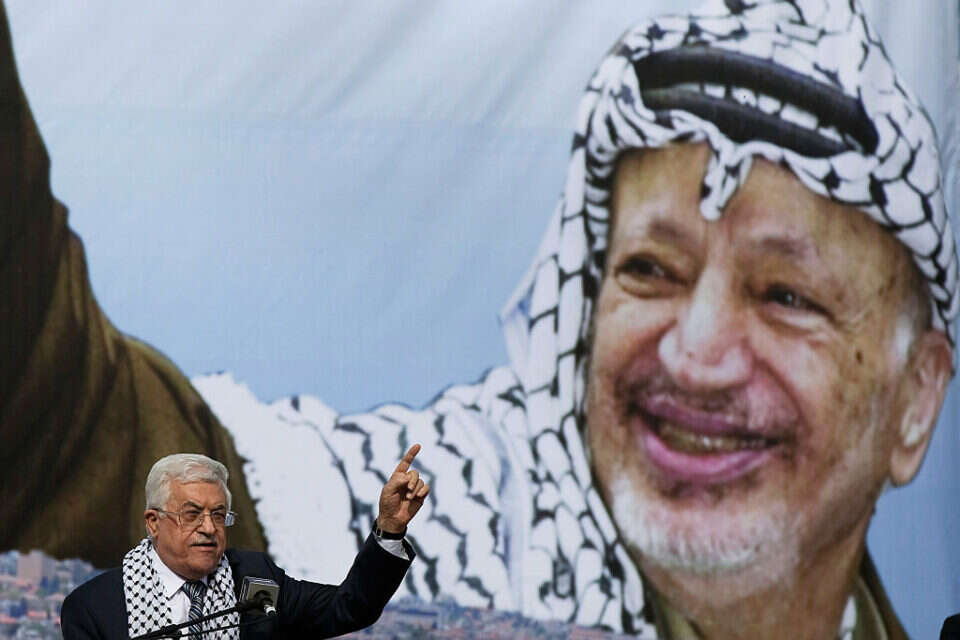
"The Palestinian Authority is in a deep ideological crisis," says Yadai. "Their core argument that any diplomatic agreement in the Middle East must pass through Ramallah has been eroded by the Abraham Accords. Its domestic legitimacy vis-à-vis the Palestinian public also no longer leans on ideology, but on daily functionality."
That, he explains, is the reason that PA President Mahmoud Abbas took the decision to call elections, which he later ended up cancelling. "We were given a glimpse of what such elections would look like: Fatah is divided and plagued by internal rivalries; Hamas, on the other hand, has built up a top-level organizational and political infrastructure, which it aims to use in the future as the basis for a military infrastructure.
Q: Would Hamas have won if the election had gone ahead?
"I don't assume that it would have won, but it certainly would have become a significant player in the West Bank that could not be ignored. One can only imagine ministers who are Hamas members, as well as security apparatus commanders and regional commanders who are from Hamas.
Q: What would the implications be?
"At present, we have good security cooperation with the Palestinians. It could have been damaged and taken on a completely different dimension."
The elections were canceled, but Hamas got stronger nonetheless. This happened because of Operation Guardian of the Walls in which the organization took the lead in setting the Palestinian agenda. Moreover, the election process itself ‒ in which Hamas was a legitimate candidate ‒ meant that funds were able to flow to the organization.
Q: Nevertheless, the West Bank was relatively quiet during Guardian of the Walls?
"There is sympathy for Hamas among the Palestinian public in the West Bank, but at the moment of truth, when called to action, they prefer to choose life. After all, if you ask a Palestinian in the West Bank to choose a place to live in the Middle East, they will choose Judea and Samaria."
Q: Don't they understand that if they bring Hamas to power, they will be in the same situation as the residents of Gaza?
"They understand very well. That's why they are ready to identify with the struggle for the Temple Mount, bur with tweets and less so with violent demonstrations. In Judea and Samaria, there is fatigue with ideological struggles; people want to live. Especially the 1.2 million young people in the West Bank who are in no hurry to die a martyr's death for either Hamas or Fatah's ideologies."
The standard of living in Judea and Samaria is reasonable, he explains. "There are places where it is very high, and other places where it is not as good, especially in the refugee camps. Go into any mall in Ramallah or Nablus and you will see for yourself. In Jenin, you can't find a table at a cafe. In Rawabi prices are like those in Kfar Saba. People have a life. You can travel from Jenin to Hebron and not see one roadblock along the way."
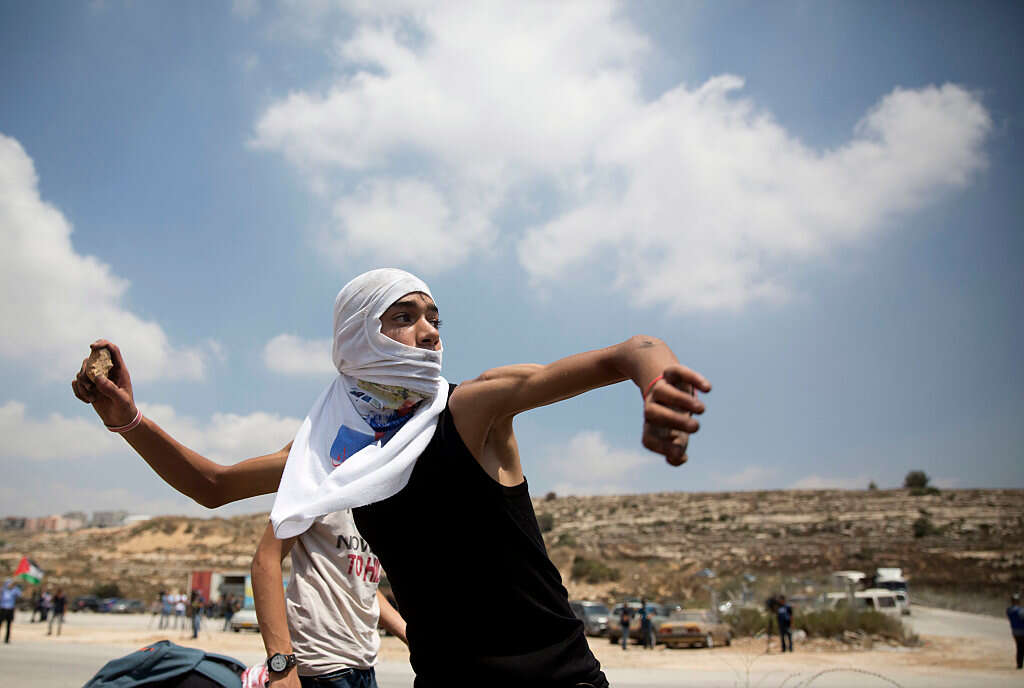
Q: Some people would say that by not having roadblocks you are endangering the lives of Jews traveling on West Bank roads.
"I've taken flak from both sides, but I judge myself based on results, not by what people say. There were two deaths in Judea and Samaria over the past year ‒ Esther Horgen and Yehuda Guetta. That's a lot less than a regular year, and it's the result of the IDF and the Shin Bet uncompromisingly hitting terror infrastructures on a daily basis."
Three other reasons for the success of counterterrorism operations are effective security cooperation with the Palestinian Authority security apparatus, damage to Hamas' organizational infrastructure (especially its finance apparatus), and use of advanced technologies as part of the "smart arena" , which enables "monitoring of terrorist activities in a way that makes it difficult to launch attacks, and if an attack has been carried out that we can track down the perpetrators and reach them within a short time," he says. "Attacks that in the past took us days to decipher can now be deciphered in hours. That has made a lot of people realize that terrorism is pointless."
Q: Nevertheless, there are attempts to carry out terrorist attacks all the time.
"That's the security paradox in a nutshell. When things are good, nobody knows there is a problem. When things start to turn bad, questions arise."
Attempts to carry out terrorist attacks are led by Hamas, mainly from Gaza. These efforts are part of its resistance ideology and it also identifies in the weakness of the Palestinian Authority a vacuum through which it can enter the West Bank. "Hamas heats things up and tries to take ownership of every incident and every struggle. This is part of its effort to create a foundation for a future challenge on the day after Abu Mazen."
Q: Hamas is trying to carry out a large attack in Judea and Samaria. What interest does it have in doing so? After all, it will pay a heavy price.
"Hamas wants to destabilize the security situation in the West Bank. It believes that if an attack is carried out far from Gaza, it won't pay a price. But it most certainly will. If there is such an attack, all of its military, political and organizational infrastructure - which we know how to reach - will suffer significant damage."
No compromise on counterterrorism
According to Yadai, the Palestinian Authority's weakness is causing a lack of governability in several areas of the West Bank. The most noticeable of these is the Jenin refugee camp, which turns into a battleground every time the IDF enters in order to carry out arrests and operations. "Counterterrorism in the West Bank is based on two components: Intelligence superiority and operational freedom.
"My directive has always been that on these two components there can be no compromises. Because as soon as you lose operational freedom and you can't make arrests anytime, anywhere, control over Judea and Samaria will fall apart in a moment. So, despite the price that these operations exact from us, and despite the risk, there can be no compromise. The reason that there are relatively few deaths is that IDF soldiers act with great proportionality, and make sure to strike only where necessary."
Q: In view of the anarchy you have described, do you think we will see more guns turned against the IDF?
"In 99% of cases, our operations pass without incident, or they run up against minor popular protests. The events in the refugee camps of Jenin, Balata, and Al Fawar are the exception, and we prepare ourselves differently to go in there. I believe that if we are determined and we continue with our operations, resistance will decline."
Q: If there is a wide-scale conflagration in the north or another conflict in Gaza will Judea and Samaria remain quiet?
"The parameters will remain the same: The PA's reticence against the use of violence, the Palestinian public's battle fatigue, the collective memory of the trauma of Operation Defensive Shield. When the average Palestinian sees what is happening in Syria, Iraq, Afghanistan, Egypt, Libya, Gaza, they don't really want to be there."
Q: What happens when the Palestinians are told 'Al-Aqsa is in danger'?
"The fact is, they were told that. Even Israeli Arabs chose to revolt, Gaza burned. Jordanians came from the Iraqi border to protest on the border with Israel, but the Palestinians in Judea and Samaria stayed at home. We mustn't delude ourselves; we aren't talking about a bunch of lovers of Zion, and none of them reads Jabotinsky's Iron Wall at night. They operate out of their own rational considerations."
Q: There was violence in the West Bank at the start of Guardian of the Walls.
"We prepared ourselves and we responded. All the disturbances and attacks ended with only one death, and with the Palestinians paying a heavy price. That sent them a very effective message."
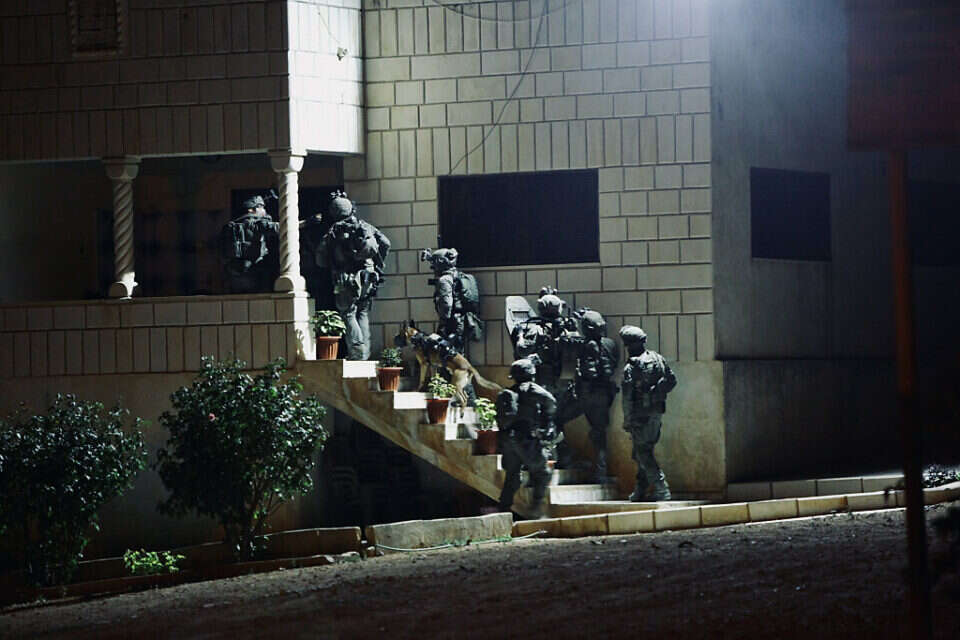
Q: One of the claims made against you is that since Guardian of the Walls there has been a sharp increase in the number of Palestinian casualties, that IDF soldiers are "trigger happy."
"Policy on the use of force has not changed. These were very violent events. Over 40 soldiers were wounded - one soldier was shot in the foot, others ended up with a broken jaw or shoulder. I don't buy all the talk about innocent Palestinians being killed. The last thing you can say about someone who is shooting fireworks at a soldier from a range of 20 meters [yards] is that they are innocent.
"Wherever a soldier is in danger, he has all the legitimization to use his weapon to alleviate that danger. Some of those killed were carrying M-16 rifles in order to open fire. Some of them were carrying IEDs. Some attacked soldiers. None of them were innocent the way I see it."
Q: A 12-year-old boy was shot dead in Beit Ummar.
"That boy is in the category of innocent casualties. It was an event where there was an accumulation of tragic circumstances. I'm an adult, I'm married and I know what it means to have a child. Believe me that nothing makes my stomach turn like that incident."
Q: It happened nevertheless.
"Professional errors were made during the incident. The soldiers were in their position which protects Route 60, near Beit Ummar. They saw someone near the position digging in the ground and burying some bags there. It was an unprecedented incident and therefore he was seen as a suspect. When he finished, they came down from their position to see what was going on. They opened the bags and saw the bodies of two infants. From their point of view, it was a dangerous crime and they immediately called it in. Meanwhile, they saw a car similar to the one that had unloaded the bodies. They were convinced it was the same person and ordered him to stop. The vehicle tried to get away and they conducted an arrest procedure and shot three bullets at the vehicle's tires. One of the shots was too high and killed the child."
Q: What did the inquiry reveal?
"First of all, if a baby dies shortly after birth it isn't buried in a regular cemetery but at that place. We didn't know that. Even if the soldiers thought a crime had been committed, it wasn't a terrorist attack that necessitated opening fire. I see the incident as an operational failure that should be dealt with at the command level, and certainly not a problem of values."
Q: Nevertheless, there is a lot of criticism about soldiers being trigger happy. There were even reports that the IDF Chief of Staff asked you to turn down the heat
"I have no idea where that report came from, I can only say that this never happened. The Chief of Staff made a clear distinction between an error, a professional failure, and a problem of going beyond instructions. When the events were described to him, he made it clear that the policy on the use of force is the right one."
Q: Still, Haaretz daily has called for your dismissal.
"Whoever is examining our operations, for better or for worse, should do so on the basis of facts and figures, not on the basis of personal or political agendas. I am in favor of criticism, and I even believe that it is necessary, but it is hard to side with statements that are unfounded and unprofessional."
Nobody can break the law, Jew or Arab
Yadai, 51, is married to Yifat and has three children. He began his military career in the Golani Brigade, rising through the ranks until becoming its commander. He went on to command the Eilat Division and the Judea and Samaria Division at the time when three Israeli teens were kidnapped and murdered by Hamas in 2014, an event that eventually lead to Operation Protective Edge. Later he served as head of the Home Front Command, including during the period that the coronavirus pandemic erupted.
He was appointed GOC Central Command last July. Alongside the primary mission of dealing with Palestinian terrorism, he was forced to deal with quite a few incidents involving Jews.
One that stood out was the establishment of the Evyatar outpost near Tapuah Junction. The first attempt to set up the outpost came back in 2013 (as a response to the murder of Evyatar Borovsky, who was stabbed to death at a bus stop at the junction, and after whom the outpost is named). The second attempt came in May of this year following the murder of Yehuda Guetta in a drive-by shooting at the junction. Within a short time, the outpost had permanent buildings and infrastructures that housed 53 families. It was evacuated only after a compromise was reached in which the status of the land would be examined, and a yeshiva would be built there in the future.
The IDF was heavily criticized for failing to evict the outpost as soon as it was established and allowing the residents to settle in, thus turning its evacuation into an explosive political issue. "I have known Judea and Samaria well for a number of years, and after almost every terrorist attack an outpost is established. People go and settle on a hill, and after a few days they leave," says Yadai.
"That's what we thought would happen this time as well. You have to remember that our priority is first of all to arrest the terrorist, who is at loose and armed. We were there with a small force, and all our efforts were aimed at catching the terrorist. I want to remind you that it was the eve of Ramadan, we were preparing for possible violent incidents and so we said that we would evict the outpost the following week. But then, Guardian of the Walls happened and the forces that were supposed to carry out the eviction - the Israel Police and the Border Police - were busy with other missions, and were sent to deal with the violent events in mixed towns."
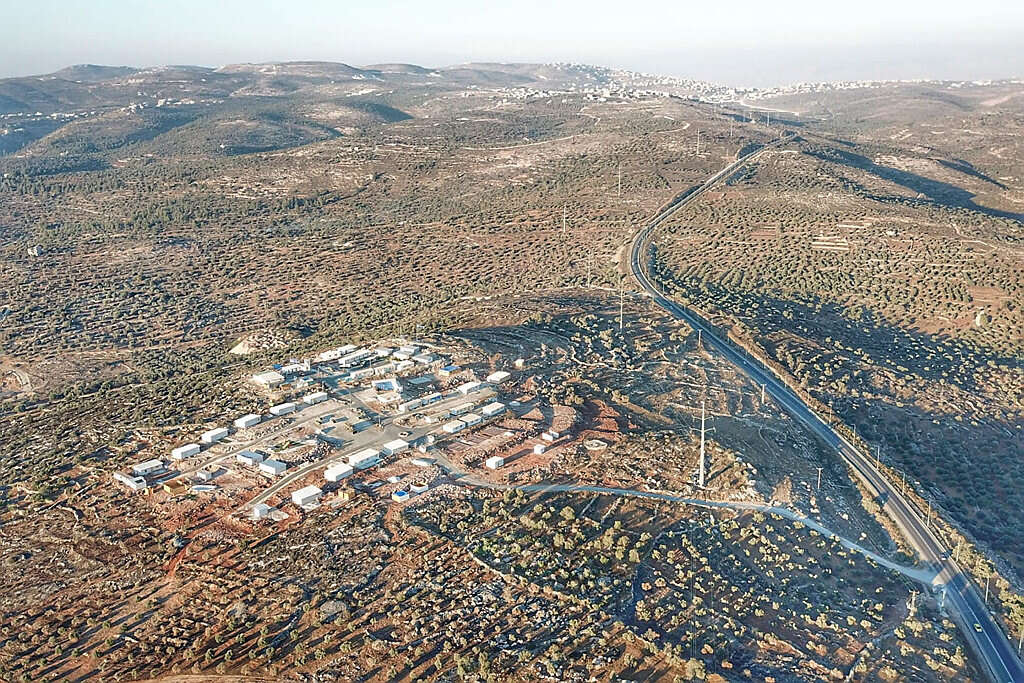
Q: Why wasn't the eviction carried out after the operation ended?
That was the intention. But then there was the [Jerusalem] flag march and the police commissioner made it clear to us that they couldn't take it on and asked for a postponement. As a result, we issued a demarcation order, and everything was moved up to the legal dimension."
Q: The bottom line isn't good. What is there to stop a new outpost from being set up every day?
"The fact is there have been two attempts since then and they were cut short within two minutes."
Q: Perhaps it would have been better if Evyatar had been cut short within two minutes?
"If you look at the story from the end, then you are right. But when we went into it, that wasn't how it looked."
Q: There have also been claims that a number of radical right-wing activists have been subject to rough treatment.
"Let's talk about facts. According to the Shin Bet, the number of violent operations conducted by the extreme right declined by 80 percent in 2020. That happened because, exactly as with Palestinian terrorism, here as well I won't tolerate it. Anyone who has crossed the line, who has participated in violence against Palestinians, or who has hurt IDF soldiers - then I will use all the tools at my disposal to stop it."
Q: We already know that all it takes is one incident to set everything alight.
"Well, wherever I have seen that things are getting out of control, I have taken action. We have issued injunctions, we have distanced people; we did so out of the understanding that if there are those who are capable of destabilizing the security situation in Judea and Samaria, it is exactly those people, from both sides."
Q: Let's talk about Jordan. The border with Jordan is Israel's longest and it's not as stable as it used to be. How worried are you that terrorism could spill over into our territory?
"Operation Guardian of the Walls was a test. Thousands of demonstrators came to the Allenby Bridge, including on busses that came from Iraq. Our security coordination with the Jordanians was very good, and our strategic dialogue with them is important. Its goal is to maintain the stability of the Kingdom and to ensure that the border remains stable and safe. That's something both sides have an interest in."
Ground maneuvers are costly, but irreplaceable
Yadai served as GOC Central Command for only 13 months. Chief of Staff Lt. Gen. Aviv Kochavi named him GOC Army Headquarters because he wanted a seasoned officer, an experienced general in the position who could act as a professional authority vis-a-vis the rest of the army.
Yadai is aware of the harsh criticism regarding the ground forces' war readiness. "Investments have increased during the terms of the last two chiefs of staff," he notes.
Q: still, when it comes to battle, there are fears when it comes to sending in ground forces and the air force is preferred
"The nature of war has changed significantly in recent years. In particular, in Gaza and Lebanon, we have seen the establishment of firepower bases that fight against us using high trajectory fire toward our civilian front. Their battle arena is primarily underground or within civilian areas. Their entire doctrine is based on these components.
"We are required to solve the problem and to do so at a reasonable cost. We are highly sensitive to soldiers' lives. But I still believe that as good as aerial and intelligence capabilities are - and they are outstanding - they cannot solve the matter on their own. Certainly not against a more challenging enemy such as Hezbollah. So the matter of a ground maneuver is not really a question, because even if you would like it to be so, there is no other way. There just isn't."
Q: Former IDF Ombudsman Maj. Gen. (res.) Yitzhak Brik says that even if the IDF were to want to send in ground forces, they are so out of practice that in real-time they simply won't function.
"It's true that there are problems and challenges, but I'm not sure that that is the situation. Our battalions are much stronger today than they were when I was a battalion commander and a division commander. Our soldiers are far superior, from training through to equipment. Still, it's true that resources aren't 100 percent adapted to our needs."
Q: The bottom line is that the political echelon is very hesitant about sending the ground forces in. We have seen this in every round of conflict, including Guardian of the Walls.
"Ground maneuvers have a cost. I want to know that when my son is sent to fight in Gaza or Lebanon, it will happen only after all considerations have been weighed and that it will have high operational value."
Q: Do you prefer that your wife is hit by rocket fire in Kfar Saba so that your son doesn't have to go into Gaza?
"Of course not. The role of the army is first of all to protect civilians - so there is no dilemma on that point. The question is how it should be done, and we have to try and do it at the most reasonable cost. Our role is to find a solution that will enable us to expose the enemy and attack him in the most effective way, and that it is done at a reasonable cost."
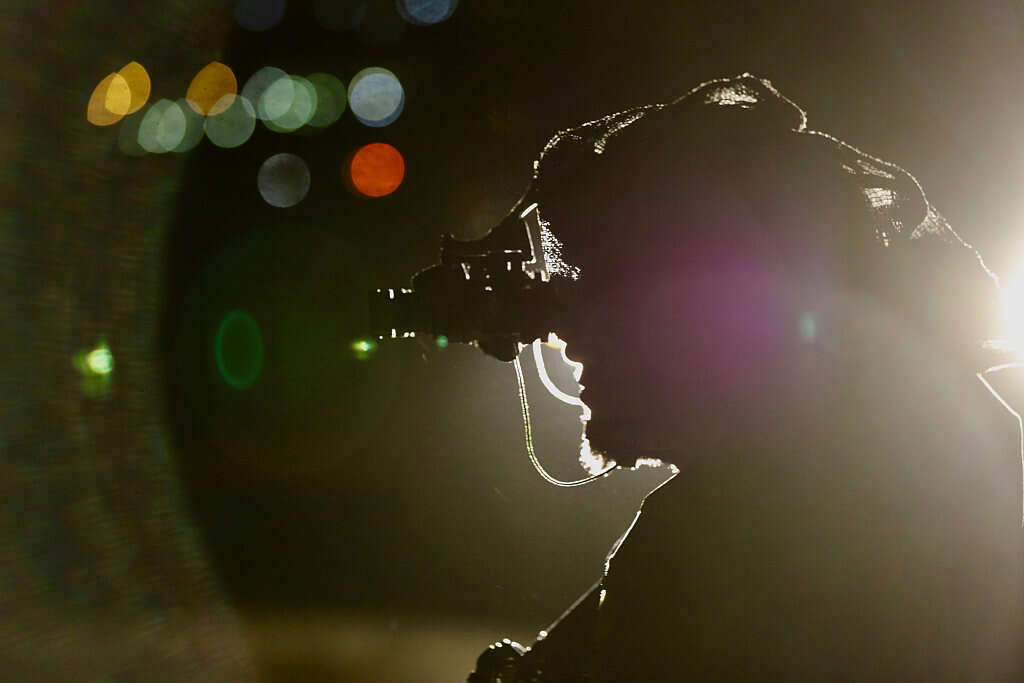
Q: How do you launch a ground offensive at a reasonable cost?
"We have the capabilities to stretch to the limit all the good that the State of Israel can provide us with: Intelligence, precision solutions that can deal with bases of fire shooting at the State of Israel."
Q: Are the ground forces good enough to do it?
"I think that despite shortcomings that do exist, there isn't a single army around us, or beyond, that comes close to the capabilities of the IDF."
Yadai is troubled by the fact that because of the relative security calm along Israel's border, today's soldiers lack true operational experience. "We are returning to the security paradox. In Lebanon, we buried 25-30 soldiers every year, but no soldier today has anywhere near the battle experience I gained just as a company commander where I had three engagements with the enemy. But we have to be thankful for the current reality, not to cry about it."
Q: Perhaps because there is no sense of threat, and no real fighting going on, there is a decline in motivation to serve in the IDF in general and in combat units specifically?
"The challenges we face have grown significantly. Today, there are professions that contribute to battle no less than a combat soldier in Golani - professions such as Iron Dome, Home Front, Intelligence, Cyber. On the other hand, combat soldiers are the ones that cross borders, storm a hill, and expose themselves to danger. The better the security reality and the more that actual encounters with the enemy decline, the challenge increases. It is our job to make sure that the best people continue to want to come to Golani, Givati, and the Paratroop Corp.
Q: How do you do that?
"What we need to do is to give people meaning, and to bring technology to the combat soldier in the field, and in particular, to explain to them that when D-Day comes, if we want to stay here, we won't be able to do so just from the air or from the sea, and we won't be able to do just with intelligence. At the end of the day, we need soldiers who will cross the border and capture a village or a hill. There is no substitute for that."
The IDF is no longer Israel's sacred cow
During his service as a commander in Golani, Yadai experienced several mutinies of soldiers, particularly against the background of withdrawal of certain rights from veteran soldiers. "The army has changed. I think soldiers have tired of fighting over that," he says. "The story is dying down."
Q: Really?
"When did you last hear of a mutiny like there used to be?'

Q: Has the military matured?
"The army has matured, the commanders have matured, and the soldiers have matured too."
Yadai is worried about the fact that the IDF is no longer sacred for Israeli society, that it takes for granted the army and those who serve in it. "When I was in Lebanon as a commander, there were a lot of challenges, but the main thing I felt from the people was a sense of mission. One time I went from my Golani base to Nahariya to take out some cash."
Subscribe to Israel Hayom's daily newsletter and never miss our top stories!
"When I went into the bank there was a long queue, but then a woman came up to me and said 'soldiers don't stand in line'. I didn't agree. There were elderly people in front of me and I thought to myself if my father knew that I had skipped the queue in front of an old woman he would kill me. But I felt that the people were with me. In recent years, that's changed. People talk about salaries and pensions, but the real dialogue is about other things."
Q: What is it about?
"About the place of the army in Israeli society in the year 2022. About the people's army, about the prestige of serving."
Q: Is the IDF no longer the sacred cow that it used to be?
"Because the army is our boys, our brothers, our uncles, its prestige and status cannot be significantly changed. But still, we cannot only remember the army, the people serving in it, the fatalities and the wounded on the day after the next Lebanon war or a campaign in Gaza, because the IDF and the quality of those serving in it are the only guarantee that we will survive here over time.
Q: Nevertheless, there has been criticism on the issue of pensions for example.
"Let's talk about a sergeant major in Golani. He is 53-years-old, he is in the field with the forces. He sleeps with four people in a room and goes to take a shower covered in a towel so that the soldiers won't see him. Where else in Israel or in the world can you see something like that. People are making a story out of a few hundred economists and lawyers, but they also work really hard. At the end of the day, go back and think about that sergeant major."
"In my view, the whole debate about pensions is just to cover up something a lot bigger. The IDF is paying the price of its success - for the fact that things have been quiet for a good few years. Let's go back to the reality of the past, with missiles and terror attacks every day. This debate wouldn't be taking place then. Everybody would be embracing us.


